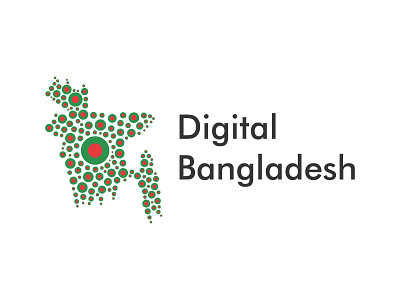Exploring the Vision and Impact of Digital Bangladesh: How Technology is Shaping the Future of a Nation
Understanding Digital Bangladesh: The Nation's Technological Revolution

Introduction
In an age where technology is reshaping the global landscape, Bangladesh stands at the forefront of a digital revolution with its ambitious initiative, Digital Bangladesh. Launched as a visionary plan by the government, Digital Bangladesh seeks to leverage information and communication technology (ICT) to drive national development, enhance governance, and improve the quality of life for its citizens. This post delves into the core aspects of Digital Bangladesh, exploring its objectives, achievements, and the impact it is having on various sectors. Whether you’re a tech enthusiast, policymaker, or simply curious about the future of Bangladesh, this comprehensive overview will provide valuable insights into how this digital transformation is unfolding.
What is Digital Bangladesh?
Digital Bangladesh is a strategic initiative spearheaded by the Government of Bangladesh with the aim of transforming the country into a digitally advanced society. The concept was first introduced in 2008 by the then-Prime Minister Sheikh Hasina and has since evolved into a comprehensive framework designed to enhance governance, promote socio-economic development, and bridge the digital divide.
The core vision of Digital Bangladesh revolves around the integration of technology into various aspects of life to streamline processes, improve accessibility, and foster innovation. This initiative encompasses a broad spectrum of projects and policies aimed at building a digital infrastructure, promoting e-governance, and encouraging digital literacy among the population.
Key Objectives of Digital Bangladesh
1. E-Governance and Digital Services
One of the primary objectives of Digital Bangladesh is to revolutionize the way government services are delivered. By implementing e-governance systems, the initiative aims to make public services more accessible, efficient, and transparent. Citizens can now access various government services online, reducing the need for physical visits to government offices and minimizing bureaucratic delays.
2. Enhancing Connectivity and Infrastructure
To support the digital transformation, the initiative focuses on improving connectivity and infrastructure across the country. This includes expanding internet access to remote areas, upgrading telecommunications networks, and promoting the use of digital technologies in both urban and rural settings. Enhanced connectivity is crucial for enabling digital services and ensuring that all citizens can benefit from the advancements brought about by Digital Bangladesh.
3. Promoting Digital Literacy and Skills Development
Digital Bangladesh emphasizes the importance of digital literacy and skills development to ensure that individuals can effectively navigate and utilize digital tools. Training programs, workshops, and educational initiatives are implemented to equip people with the necessary skills to thrive in a digital economy. By fostering a tech-savvy population, the initiative aims to create a workforce capable of driving innovation and contributing to the country’s growth.
4. Boosting Innovation and Entrepreneurship
The digital transformation under Digital Bangladesh also aims to stimulate innovation and entrepreneurship. By providing support for startups, tech hubs, and research and development initiatives, the initiative encourages the growth of a vibrant tech ecosystem. This not only fosters creativity but also contributes to economic development by creating new business opportunities and generating employment.
Achievements of Digital Bangladesh
1. E-Government Platforms and Services
The successful implementation of various e-government platforms has been a significant achievement of Digital Bangladesh. Services such as online tax filing, digital land records, and electronic passport applications have streamlined administrative processes and made interactions with government agencies more convenient for citizens. These platforms have also increased transparency and reduced corruption by minimizing human intervention in service delivery.
2. Expansion of Internet Access
Digital Bangladesh has made substantial progress in expanding internet access across the country. The introduction of high-speed internet services, the establishment of internet hubs in rural areas, and the promotion of affordable data plans have significantly increased connectivity. This expanded access has enabled more people to engage with digital services, access information, and participate in the digital economy.
3. Development of ICT Infrastructure
The development of robust ICT infrastructure has been a cornerstone of Digital Bangladesh. Investments in data centers, cloud computing, and network infrastructure have created a solid foundation for the country’s digital ecosystem. These advancements have facilitated the smooth operation of digital services and supported the growth of tech-based businesses.
4. Growth of Digital Literacy Programs
Digital literacy programs have played a crucial role in empowering individuals with the skills needed to navigate the digital world. Initiatives such as computer literacy courses, digital skills training, and online education platforms have equipped people with the knowledge to leverage technology effectively. This has not only improved job prospects but also enhanced overall quality of life.
Impact on Various Sectors
1. Education
Digital Bangladesh has had a transformative impact on the education sector. The integration of technology into classrooms, the development of e-learning platforms, and the provision of digital resources have enhanced educational opportunities for students across the country. Online education and digital classrooms have made learning more accessible, particularly for those in remote areas.
2. Healthcare
The healthcare sector has also benefited from the digital transformation. Telemedicine services, digital health records, and online appointment systems have improved healthcare delivery and accessibility. Patients can now consult doctors remotely, access their medical records online, and receive timely medical care without the need for physical visits.
3. Business and Economy
Digital Bangladesh has stimulated economic growth by fostering a thriving digital economy. E-commerce platforms, digital payment systems, and online business services have created new opportunities for entrepreneurs and businesses. The digital revolution has opened up new markets, facilitated global trade, and contributed to the overall economic development of the country.
4. Governance
The shift towards e-governance has revolutionized the way government functions and interacts with citizens. Digital platforms have streamlined administrative processes, improved service delivery, and enhanced transparency. Citizens can now access government services more efficiently, track the status of their applications, and provide feedback on public services.
Challenges and Future Prospects
Despite the significant progress achieved under Digital Bangladesh, there are challenges that need to be addressed. These include ensuring equitable access to digital services across all regions, addressing cybersecurity concerns, and continuously updating infrastructure to keep pace with technological advancements.
Looking ahead, the future of Digital Bangladesh appears promising. Continued investment in technology, ongoing efforts to bridge the digital divide, and a focus on innovation and skills development will drive the next phase of digital transformation. By addressing existing challenges and leveraging emerging technologies, Digital Bangladesh can further strengthen its position as a leader in digital progress.
Conclusion
Digital Bangladesh represents a bold and ambitious vision for transforming the nation through technology. By focusing on e-governance, infrastructure development, digital literacy, and innovation, the initiative is reshaping various sectors and driving national progress. As Bangladesh continues on this digital journey, the commitment to leveraging technology for the betterment of society will play a crucial role in achieving sustainable development and improving the lives of its citizens.
For those interested in the future of Bangladesh and the role of technology in shaping it, staying informed about the latest developments in Digital Bangladesh is essential. Embrace the digital revolution and explore how you can contribute to and benefit from this transformative journey.
Call-to-Action: Stay updated on the latest advancements in Digital Bangladesh by following relevant news sources and engaging with digital initiatives in your community. Whether you’re a citizen, business owner, or policymaker, your involvement is key to driving the success of this digital transformation.









